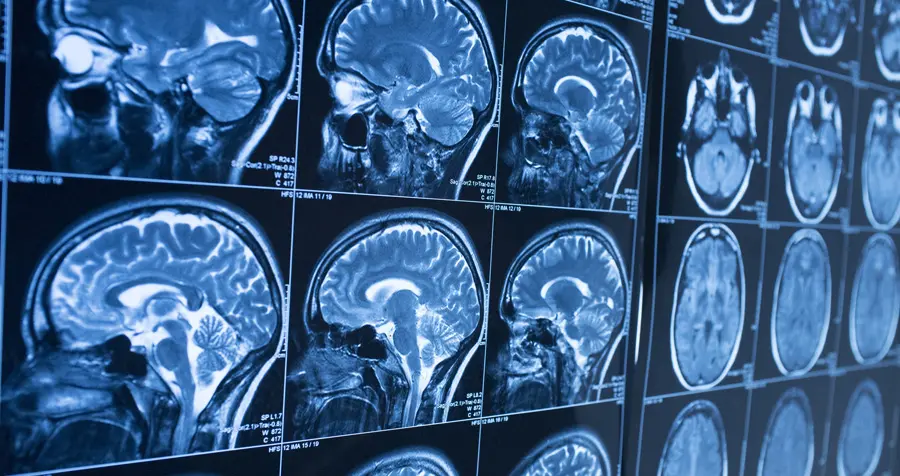Each year in the U.S, traumatic brain injuries (TBIs) cause close to 300,000 hospitalizations and 50,000 deaths. These injuries often occur when someone falls or is involved in a sports-related accident. However, the leading cause of death from a TBI and the second leading cause of TBI hospitalizations is motor vehicle accidents.
Despite increased safety equipment and technology, the number of automobile accidents increases each year. In 2018, in Miami-Dade County alone, 64,627 motor vehicle crashes occurred, causing injuries to 31,287 people. Obviously, we’re not going to prevent or stop all motor vehicle accidents, but we can be proactive in making sure people with potential brain injuries get the medical attention they need.
Early identification and treatment can help mitigate some of the serious, life-altering or even life-threatening complications of brain injury. Brain injury symptoms may not immediately manifest themselves or may, initially, be quite subtle. This delayed presentation of injury does not mean that the injury is not of a serious nature. Accordingly, when someone sustains head trauma in a car crash, it is critical that they be urgently evaluated at a hospital emergency room and probably in follow-up by a well-trained neurologist.
In most instances, it is necessary to perform a CT scan or an MRI to make sure that there isn’t a subdural hematoma, a subarachnoid hemorrhage or some other form of bleeding in the brain that may require medical intervention. Delay in treatment of these serious conditions can cause further brain damage and can, in some cases, be fatal.
However, even where a patient hasn’t suffered a cerebral hemorrhage that can be seen on a scan, the brain injury patient can have microscopic tearing and shearing of neurons or nerve cells in the brain. Such injuries can occur when the gelatinous brain is thrust against the bony prominences of the skull, and is injured, due to the violent acceleration and deceleration forces of a car crash.
Trained brain injury experts, such as neurologists and neurosurgeons, initially, and later on, neuropsychiatrists and neuropsychologists, can identify the signs and symptoms of brain injury and prescribe needed interventions to aid in recovery.
Head Injuries During a Motor Vehicle Crash
Brain injuries can occur during an automobile accident in several different ways. A crushed roof or pillars supporting the roof, a steering wheel, a dashboard, a window or windshield or some other part of the car can make forceful contact with a car occupant’s head or face. If an occupant is ejected, head injuries are typically catastrophic. Similarly, if a pedestrian is struck by a car and head injuries are sustained, the results are often quite terrible.
Following an accident, signs or symptoms of a traumatic brain injury may begin to occur immediately or may not appear for a few days or even a few weeks. Ongoing monitoring of your condition after an accident is, therefore, very important. If you or someone that you care about is experiencing headaches, dizziness, confusion, nausea, and/or fatigue, you/they should seek medical attention even if the injured party was examined immediately after the accident and released.
Physical, Sensory, and Cognitive Symptoms of Brain Injuries
The symptoms associated with TBIs are usually categorized as physical, sensory, and cognitive. Physical symptoms may include, among others:
- Loss of consciousness or an altered state of consciousness from several minutes to hours
- Persistent headache or headache that worsens
- Vomiting or nausea
- Convulsions or seizures
- Dilation of one or both pupils of the eyes
- Clear fluids draining from the nose or ears
- Weakness or numbness in fingers and toes
- Loss of coordination
- Fatigue or drowsiness
- Problems with speech
- Difficulty sleeping or sleeping more than usual
- Dizziness or loss of balance
Sensory Symptoms include:
- Problems with the senses, such as blurred vision, ringing in the ears, a bad taste in the mouth, or changes in the ability to smell
- Sensitivity to light or sound
Cognitive and Mental Symptoms may include, among others:
- Mood swings
- Problems with memory or concentration
- Feelings of sadness, fear, irritation, or anxiety
- Confusion
- Agitation, combativeness, or aggression
- Impaired impulse control
- Slurred speech
- Word finding problems
- Mental slowness
- Impaired judgment
Recognizing TBI symptoms in children can be difficult, since it is often hard for them to verbalize what they are feeling. If your child has been involved in a car accident, it is, therefore, important to watch for these symptoms, among others:
- Persistent crying or crankiness
- Changes in ability to focus and perform at school
- Changes in their play, sleep, or eating habits
- Loss of balance or unsteady walking
- Impaired coordination
- Vomiting
- Fatigue
Long-term Effects of Traumatic Brain Injuries
Early identification and treatment can sometimes mitigate some of the devastating long-term effects of a TBI; however, the treatment options available may have limited efficacy. Seriously injured accident victims can suffer from lifelong problems, including functional impairment, disturbed cognition, and other disabilities that affect their quality of life and that of their family members. Especially in these instances, it is essential to hold the responsible parties accountable for the life changing harm that they have caused. Substantially compensating seriously injured victims of traumatic brain injury can provide them with the medical and supportive care that they need to ensure their safety and relative well-being.
If you or a family member has suffered from an accident-related traumatic brain injury in Florida, it is, therefore, essential to consult with a highly skilled and experienced Miami brain injury attorney.
Helpful Resources
Centers for Disease Control and Prevention. (2015). Report to Congress on traumatic brain injury in the United States: Epidemiology and rehabilitation. National Center for Injury Prevention and Control; Division of Unintentional Injury Prevention. Atlanta, GA.
https://www.cdc.gov/traumaticbraininjury/pdf/tbi_report_to_congress_epi_and_rehab-a.pdf
Florida Highway Safety and Motor Vehicles. (2019). Traffic Crash Reports: Crash Dashboard.
https://www.flhsmv.gov/traffic-crash-reports/crash-dashboard/

